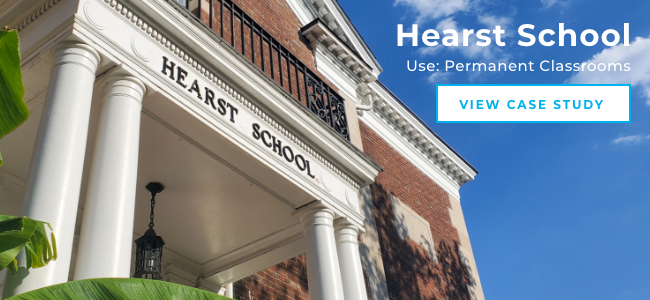-1.jpg?width=772&name=Hearst%20School%20(29)-1.jpg)
Modular Buildings Keep Students Learning in a Safe Environment Post-COVID
The COVID-19 pandemic has had a tumultuous effect on the nation’s schools. Schools have had to deal with shutdowns, virtual learning, social distancing, and mask mandates while continuing to provide quality education. Teachers have been asked to do more with less and learn to reach students they could only see through a computer. Now that we are starting to move past the pandemic and normalize mitigation strategies needed to help prevent COVID-19, schools can turn to modular construction to help keep students learning in person in a safe, clean environment.
COVID’s Effect on Schools
Social distancing mandated smaller class sizes, but schools have been scrambling to add classroom space without breaking their budgets.
Roughly half of the schools in the U.S. are at or above their permanent building capacity. Even modular buildings can take time, so they have had to be creative when housing students and cutting class sizes.
The pandemic also brought to light the state of school ventilation systems. Many were not designed to clean the area efficiently and didn’t meet the requirements for air movement and filtering to prevent the spread of the virus. Other schools actively struggle with mold and mildew issues. It’s estimated that nationwide school buildings need as much as $46 billion in maintenance.
Both public and private schools are looking to expand their capacities. Public schools need more room to space children out, and private schools have seen an influx of students since the pandemic began. Schools are working hard to improve the connection between students and teachers, as these relationships are crucial to student success.
Modular construction provides many benefits for districts and schools, and Wilmot Modular Structures offers solutions for all types of schools looking to expand and address the problems COVID has caused. We offer temporary or permanent solutions with building features such as commercial room ventilators, washable surfaces and restrooms with touchless features.
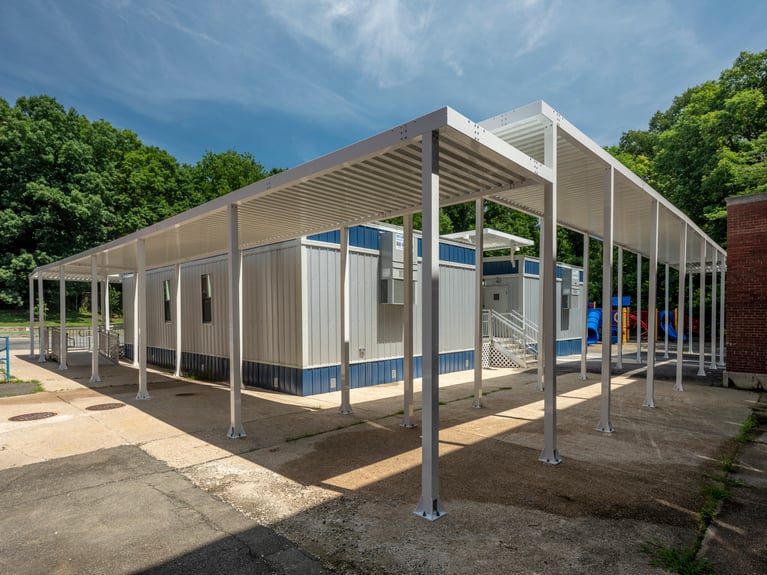
Modular Construction Benefits Both Private and Public Schools
Private and public schools are looking to expand in order to accommodate more students in this post-pandemic world. Students need more space, meaning that schools need smaller classroom sizes to keep everyone safe and healthy.
Modular buildings provide economical space on an accelerated schedule with limited site disturbance.
Modular buildings can be configured to meet a variety of educational needs, such as libraries, cafeterias, classrooms, and gymnasiums. This flexibility allows schools to make decisions that best fulfill their students' needs.
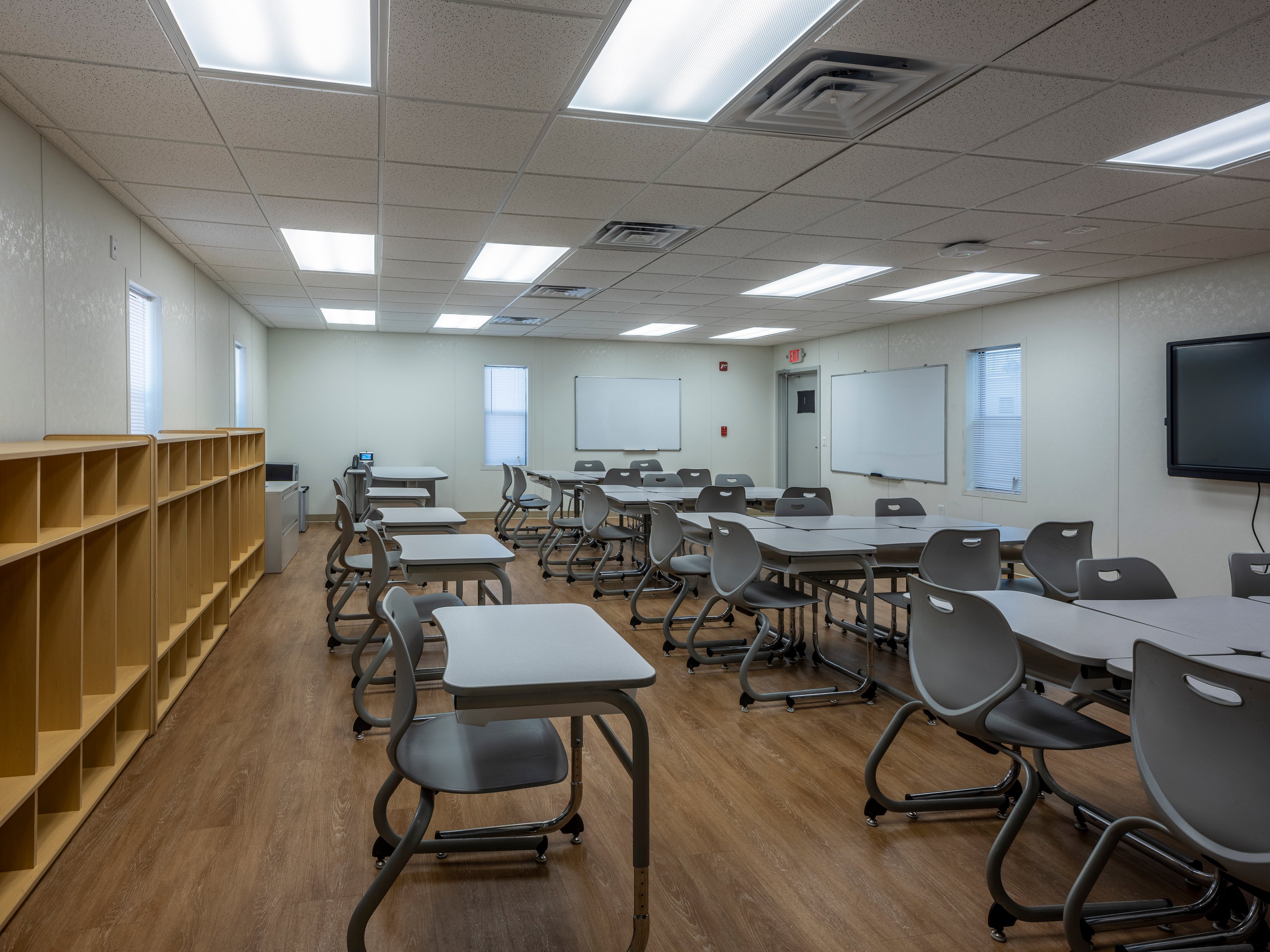
The flexibility of modular construction allows it to be a viable solution for differing site conditions. The building foundation is designed specifically for the soil and underground conditions on-site, ensuring that the building will have the stability to last for many years to come.
Both public and private schools must work within the constraints of a budget. Modular construction is economical, costing 20 to 30% less than conventional construction techniques. Custom designs give schools the flexibility you need at an affordable price point.
Modular Building Construction
Construction projects can create safety hazards, such as dangerous equipment, dust, debris, and chemicals. However, since most of the construction work is performed off-site, modular construction reduces the potential for safety hazards, making the construction project safer. Projects take weeks instead of months, keeping students, faculty, and the public safe.
Designing and constructing a modular building starts with a needs assessment, which helps the building provider understand space needs and the owner’s vision for the project and potential site locations. Next, a series of studies looks at the soil conditions and topography of the sites in question to determine if they will work for the desired building. Then the building design process begins, which includes applying for building permits. Once permits have been issued, construction of the foundation can begin. While the foundation is underway, building construction begins off-site. When the foundation and the building are complete, the building is shipped and installed at the site. This process can be up to 50% faster than a traditional design, saving schools from downtime and added labor costs.
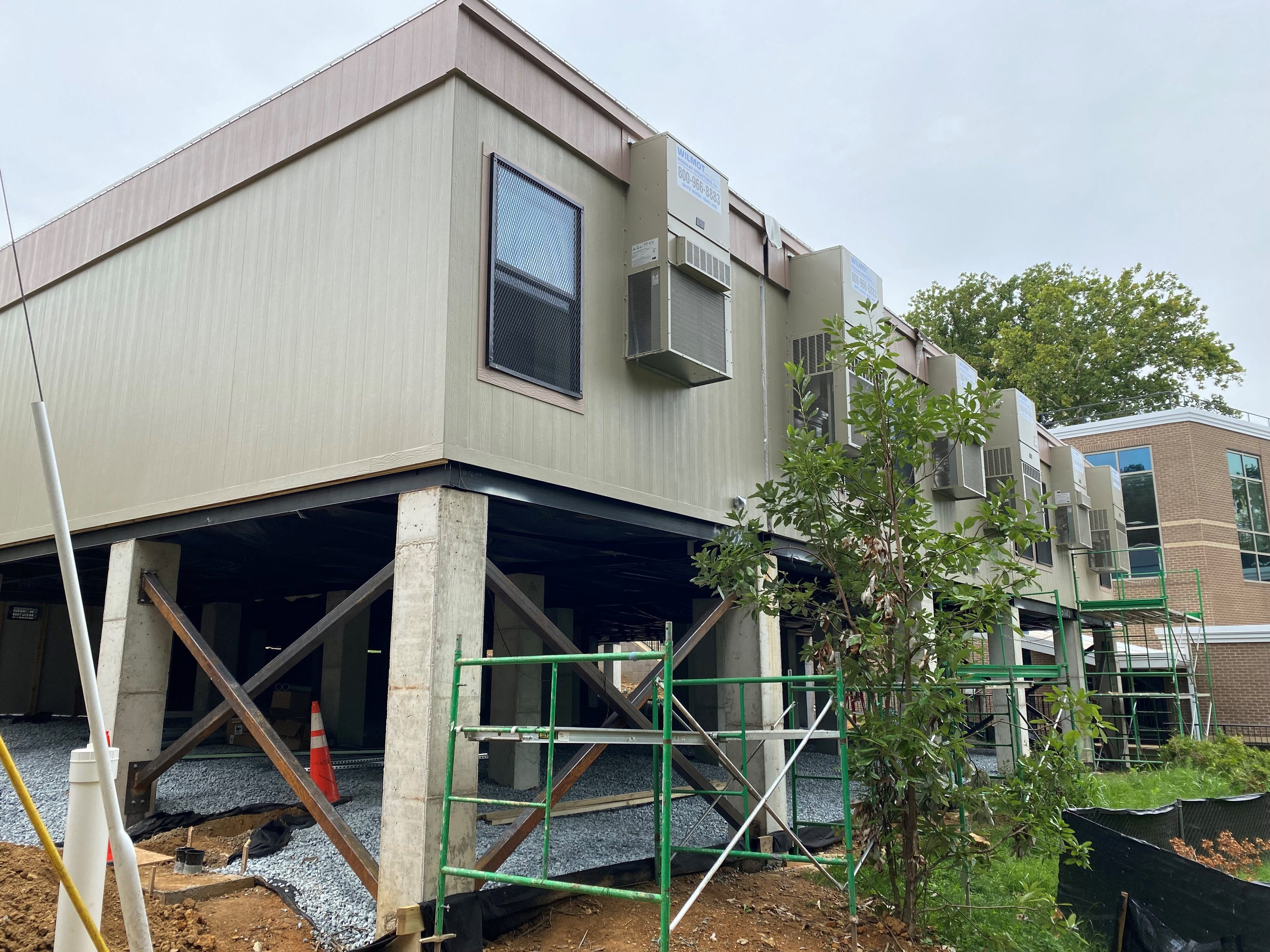
Wilmot Modular Structures Helping Schools Post-COVID
Wilmot Modular Structures is your one-stop shop for modular building design and construction. We work with your budgets and requirements to develop the best plan for your situation. The flexibility of modular construction allows us to meet even the most difficult of cases with a workable solution.
Modular buildings are a great way to respond to changing needs faster than traditional construction. Projects take weeks to complete instead of months, allowing schools to respond quickly and accommodate an influx of students.
Wilmot’s buildings are designed to comply with the latest post-COVID requirements to ensure that you provide the healthiest buildings possible. We also offer COVID cleaning services to keep your buildings and students healthy.
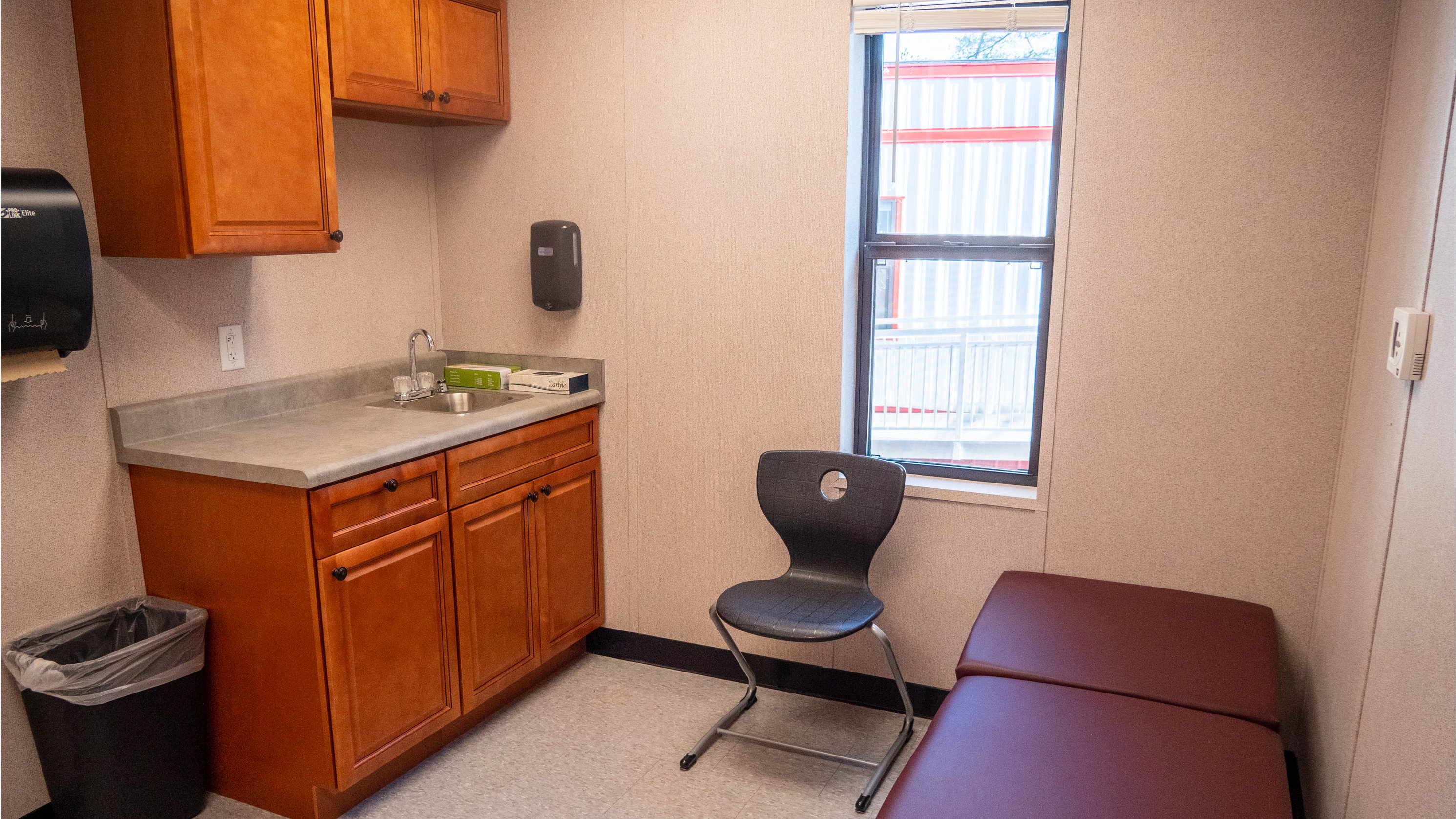
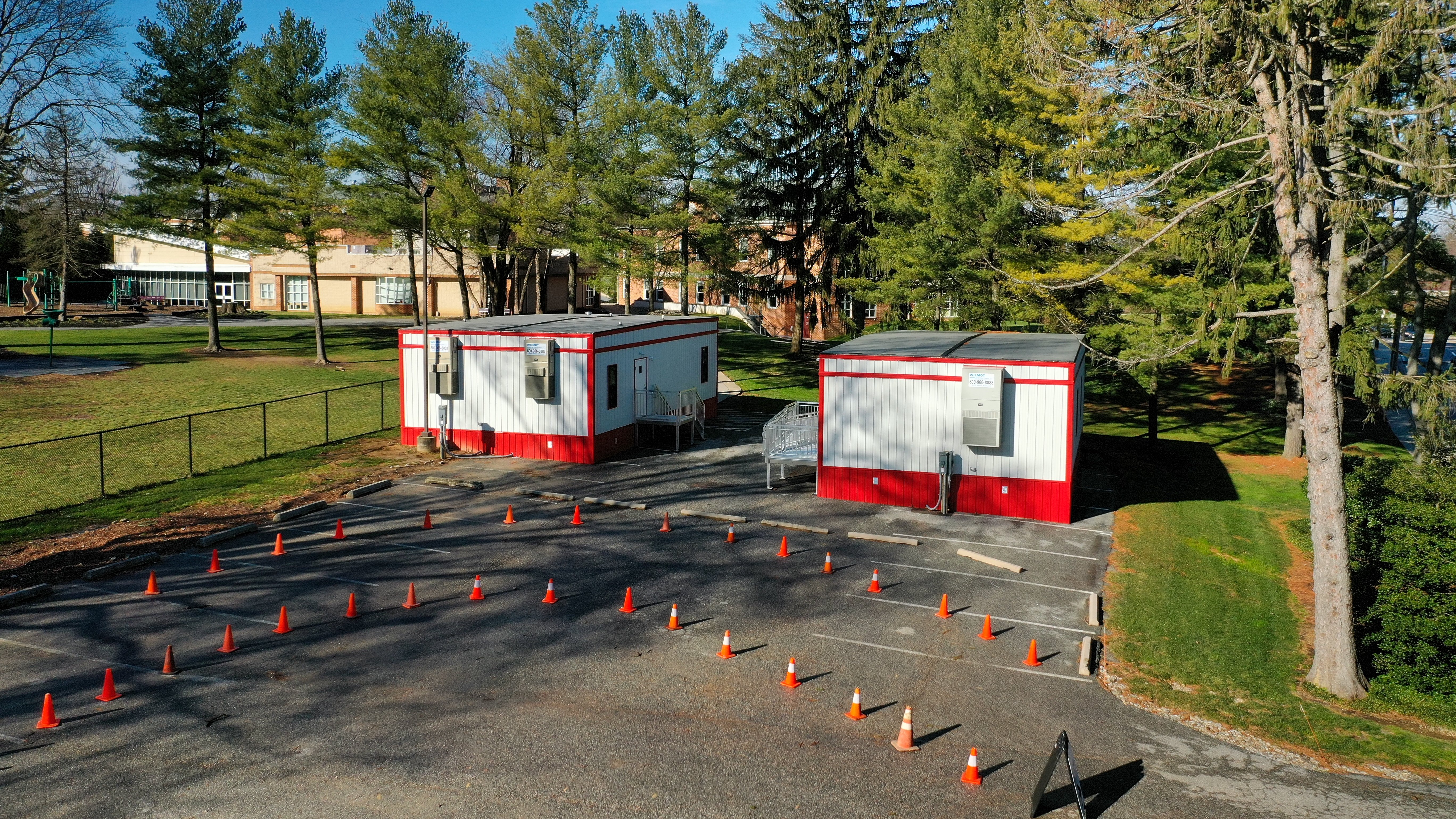
For more information on how Wilmot Modular Structures meets the needs of our educational customers, check out the Hearst Elementary School case study.
Learn the benefits of using Modular Buildings for Classroom Space. Download your free copy of the Hearst School Case Study today.






.jpg?width=770&name=Hearst%20School%20(9).jpg)
